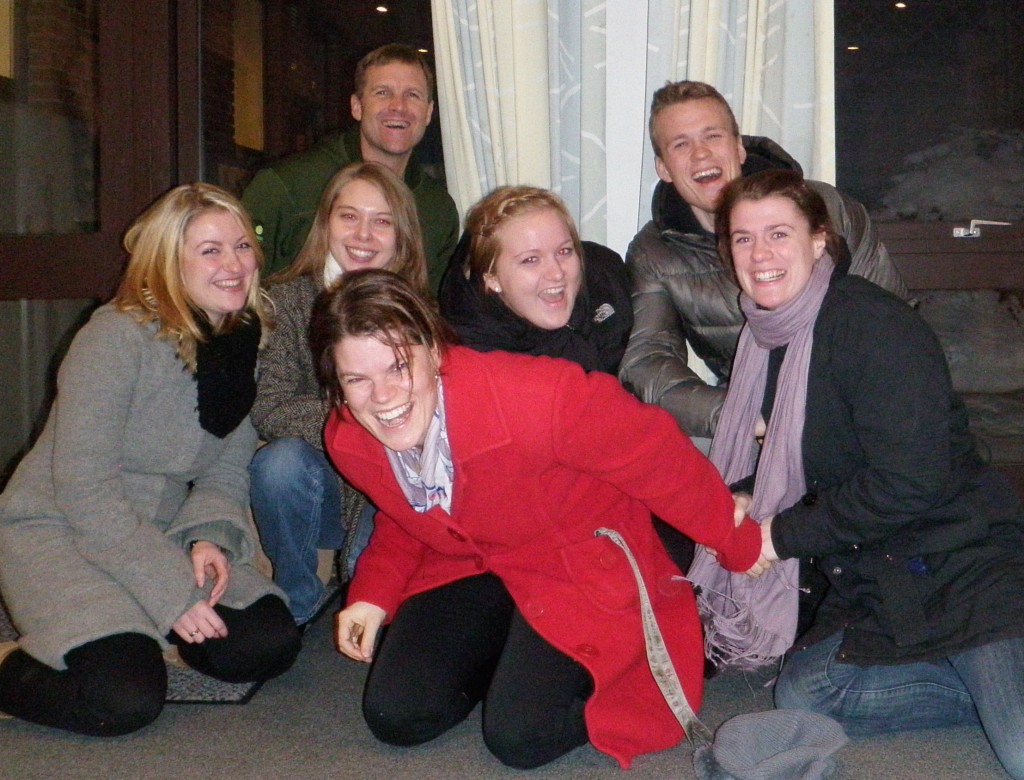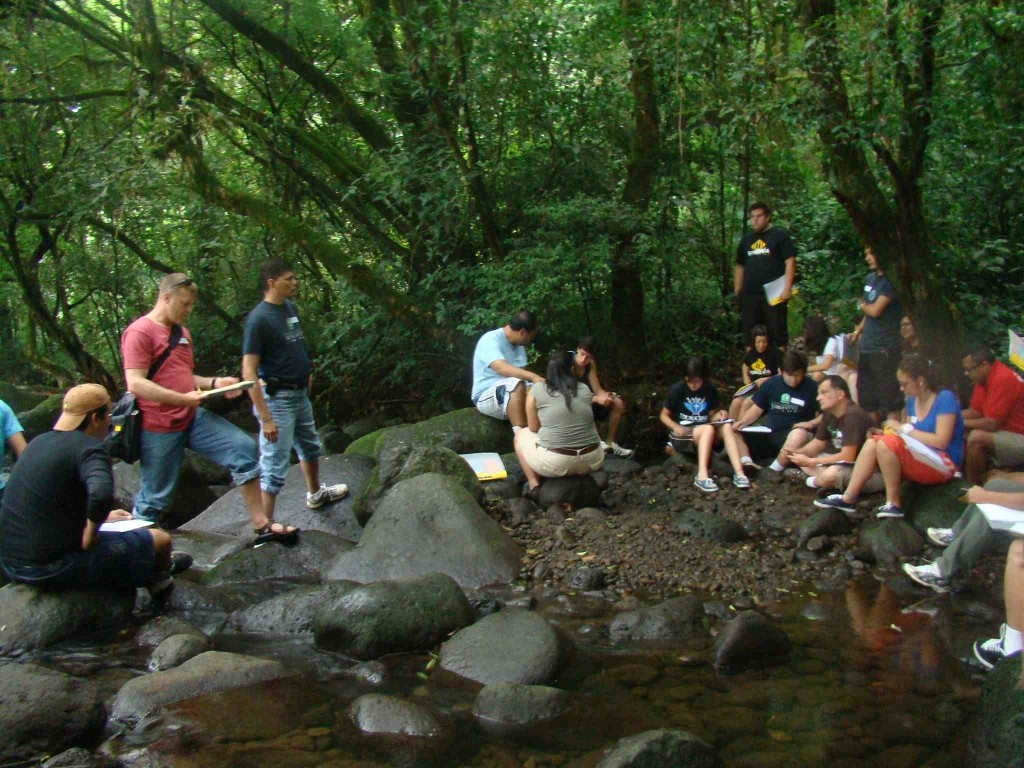Mark Cannister’s well-written article, “Doing it How They Did it,” is a fantastic overview of the origins of youth ministry. If you are looking for a brief primer on where youth ministry has come from and the implications for youth work today, I highly recommend his article below as one of the best youth ministry resources to have in your library. Download a PDF of the article here.
Category Archives: Green Zone (developing leaders)
10 RESEARCH-BACKED QUESTIONS THAT MIGHT HELP YOUR HIGH SCHOOL SMALL GROUPS OPEN UP
I really believe that ministry is more “caught” than taught. What I mean by that is that young people learn more about being a disciple of Jesus by being around someone who is intentionally pouring their lives into them. Jesus spent most of his time with Peter, James, and John, and then the bulk of the rest of his time in ministry with the other eight of his 12 Disciples. Jesus was intentional about showing them day by day what it looked like to be in relationship with him. By being around him all of the time they learned by observation what his priorities were, how he spent his day, and what seemed to matter to him. They even observed what he ate, when he slept, how he recreated, how he talked to the Heavenly Father in prayer. For Jesus, it was “quantity” time with his Disciples as much or more than the “quality of time.”
God’s Amazing Design for the Parent-Child Relationship | Colossians 3:20-21
Leaders must be close enough to relate to others, but far enough ahead to motivate them. – John C. Maxwell
Recently, my wife, Becky and I took a much needed retreat to Northern California with some friends to talk about life, marriage, leadership, and parenting. I talk alot about the need for retreat… and it was time to practice what I preach.
As a parent, and a leader in youth ministry development, I see a real need for encouragement from God’s Word on how to pursue God’s design for the parent-child relationship. The Apostle Paul offers some simple but life-changing instruction in Colossians that is probably drawn from his understanding of Exodus 20:12 which is the a commandment directed specifically toward the parent-child relationship: God instructs children:
“ ‘Honor your father and your mother, that your days may be prolonged in the land which the Lord your God gives you.”(Exodus 20:12 )
This is the one commandment that is coupled with a direct blessing. All of the commandments are equally important, yet for some reason God adds a special blessing and motivation for following this commandment. Why? I think it is probably because FAMILY is the foundation of society. If we get this wrong, society will erode at break-neck speed. If we get the Parent-Child relationship wrong, patterns will get established that could govern the rest of our lives… and effect all of those other institutions God has ordained.
Book Review: The Poverty of Nations – A Sustainable Solution by Wayne Grudem & Barry Asmus
Grudem and Asmus provide some thoughtful perspectives on how followers of Jesus Christ can actively engage in a compassion-filled ministry of social justice while going after the root causes rather than just the symptoms…
Good Relationships (in a Sinful World) Require Conflict Resolution Skills – Joshua 22
Have you have had what you thought was a really great idea that in the end went horribly wrong? I share a story of one of my personal examples in the link below to my recent sermon on conflict resolution… Joshua 22 is a profound story that shows how three tribes of Israel had what they thought was a “Great Idea” but because of lack of communication, a colossal conflict was started amongst the other 9 the tribes of Israel.
Conflict resolution is not just a skill for counselors. If we want good relationships in a sinful world, we all have to learn how to resolve conflict. I recently taught on conflict resolution and thought I’d pass the link for you to listen along.
What You Will Learn about Conflict Resolution Skills By Listening to this Sermon:
- The incredible context behind an epic conflict that almost began a civil war among Israel (Joshua 22)
- Joshua 22 gives us a formula for conflict resolution that lawyers and professional peace-makers still use today.
- An easy memory tool called, “CHESS” that you can use to diffuse and resolve conflicts successfully
-
- C: Who are the characters/people involved in the conflict?
- H: Historical relationships (what is the history behind the relationships in the conflict?
- E: What is the flow of the Events to see where the problem arose?
- S: Sides (There are always two side’s of the story … if you want to be a peacemaker and relationship builder you need to realize there is always two sides to a story).
- S: State the problem clearly. Joshua clearly states the problem and resources to resolve the problem. He the relevant issues, what made the problem blow up, etc. Then Joshua explained what resources the people had to deal with the problem to resolve the conflict (they had the Law of Moses, and the authority of the priests to look into the matter). [1]
-
- How, “Conflict + Resolution = Intimacy”
- How the Church today can re-learn conflict resolution skills to advance the Gospel more effectively
Click here to LISTEN TO MY TALK ON CONFLICT RESOLUTION FROM JOSHUA 22
You may also enjoy another recent sermon from “Joshua 7: Achan’s Sin | the Human Story”
Please pass this post along to a friend who might benefit from it. Thanks!
[1] The case-writing principles developed in this post were inspired by the following case-study tool for missiology: 7 Steps to Making a Case Study into a Learning ToolVision – Values Cycle Tool: 5 Steps to Staying on Mission
Thus says the Lord: ‘Stand by the roads, and look, and ask for the ancient paths, where the good way is; and walk in it, and find rest for your souls.” (Jeremiah 6:16)
Leading with vision is not easy. It does not look like a casual stroll through the park on a wide well-maintained path. Rather, leading with vision looks more like a jungle adventure, meandering through ups and downs, scaling sharp cliffs, making progress at times, and at other times standing still. One of the observations I’ve made about leading with vision is that that good visionary leaders understand the “Vision-Values Cycle.” Whether you are leading a small group, classroom, a business, or a family… here are some insights that will help you stay on your mission by using the Vision-Values Cycle Tool.
CASE STUDIES | THE LEADER’S TREADMILL FOR IMPROVING STRATEGIC THINKING
Case studies help leaders solve problems more effectively. They also help leaders learn how to make more efficient decisions. Case studies examine a variety of angles surrounding a problem and help you form an idea based on the information at hand. A good case study not only challenges an individual to use their noggin, but also encourages group discussion.
Case Studies: A Treadmill for Leaders
So, what makes case studies such a powerful tool for leaders, teachers, and students? Look at a case study like a leader’s treadmill: the overall purpose is to paint a picture of an actual situation—often ambiguous in nature—whereby the participants are left to process the situation and provide a solution to the problem, which may have multiple outcomes.
GENEROUS JUSTICE | A HELPFUL BOUNDARY AROUND THE TERM “SOCIAL JUSTICE”
 How does the term “social justice” strike you?
How does the term “social justice” strike you?
If you haven’t had a chance to read Timothy Keller’s book, Generous Justice: How God’s Grace Makes Us Just, I would highly recommend it. Below are a few quotes that give you a snapshot of some of what he is writing about. Depending on what circles you run in, the term “social justice” might mean a variety of things. You might be “turned off” by that term, or you might be passionate about it depending on your political or theological bent.
Regardless of your position, Keller’s book seems to approach social justice from a theological rather than sociological viewpoint which is very helpful. Followers of Jesus should never put their head in the sand when it comes to standing up for what is just, right, and fair, and Keller’s book is a helpful primer for thoughtful leaders who want to do just that.
SPIRITUAL LEADERSHIP REFLECTIONS FROM TOLKIEN’S “RIVENDELL”
 The Hobbit is a Window into a Spiritual Leadership Reality.
The Hobbit is a Window into a Spiritual Leadership Reality.
Reading the Hobbit makes me tired. It is one battle after another… with seemingly little respite. Yet the story Tolkien portrays is one of inexperienced and fearful hobbits becoming courageous champions of a cause that they believed would save the world. With a little vision and encouragement from Gandalf, they were on their way, not knowing what would happen to them. Tolkien’s story is full of lessons on spiritual leadership.
Similar to Gandalf’s conversation with Frodo, when Jesus took his young disciples up on a mountain before he ascended to heaven, he also made his mission intent clear… that although they may be afraid and the world seemed like a field too big to plant the seeds of the Gospel (see Matthew 28:19-20), he was sending them anyway… ready or not. He knew they would become courageous as they went. And so they did.
7 Ways to Change How You Lead Meetings to Improve Teamwork
How often do you feel “dragged” into meetings? How often as a leader do you feel like you have to drag people into meetings when they’d rather be doing something else? No matter how hard we try, leading teams requires meetings. So how can we lead in such a way that meetings become meaningful and improve teamwork?
I recently read a very helpful article about teamwork by Daniel Harkavy called, “7 Steps to Improve Your Meetings — and Your Team’s Effectiveness.” Below I’m sharing an abridged version of Harkavy’s list that I’ve rewritten to help me be more effective at leading meetings. I’ve included a general list and a more specific list for youth ministry leaders. Hopefully by trying some of these suggestions you’ll notice immediate a change in attitudes among your team and will have improved teamwork.







